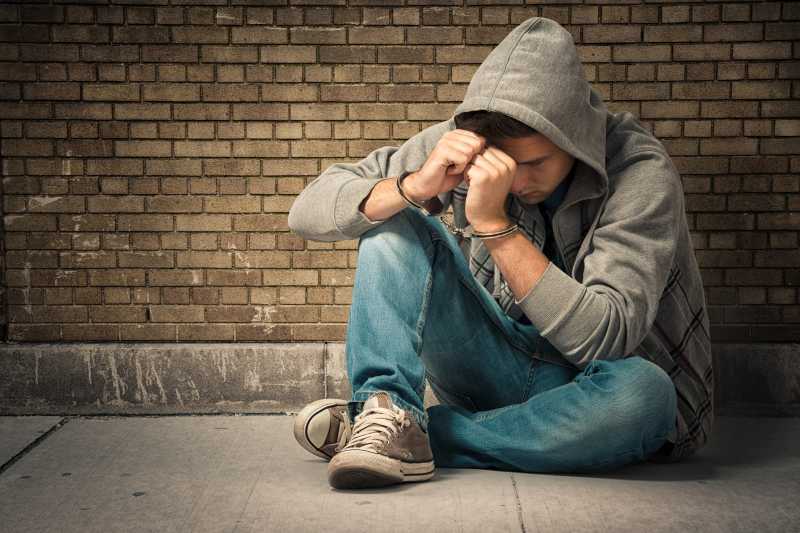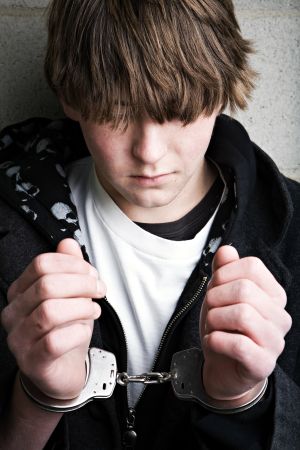Juvenile Domestic Violence Laws In Virginia
Juvenile Domestic Violence Laws In Virginia
TL;DR:
- Juvenile domestic violence cases are increasing in Virginia.
- Virginia law treats juvenile cases differently from adult ones.
- Parents may feel overwhelmed, but legal options do exist.
- Early legal guidance can protect your child’s future.
A 13-year-old boy shoves his older sister during a heated argument. She falls, scrapes her elbow, and yells. Their mother calls 911, thinking it’ll help calm things down. Minutes later, her son is in handcuffs, and she’s told he could face assault charges.
This isn’t fiction. Cases like this are happening more and more across Manassas and Northern Virginia. Teenagers aren’t immune to domestic violence laws, and for many parents, that’s a jarring realization. You might be trying to protect your child and the rest of your household, but suddenly, you’re pulled into a legal system you never thought you’d face.
What Counts As Juvenile Domestic Violence In Virginia?
Domestic violence laws in Virginia don’t just apply to adults. Teenagers can be charged, too, and it happens more often than most parents realize.
Here’s what the law considers domestic violence when it involves a juvenile:
- It’s not limited to romantic relationships. Virginia law covers violence or threats between any family or household members that includes siblings, step-siblings, parents, grandparents, or anyone living in the same home.
- Physical contact isn’t always necessary. Shoving, grabbing, or even blocking someone’s path could lead to legal action.
- Property damage may count. Throwing or breaking objects during an argument can be interpreted as threatening or violent behavior.
- Words can be enough. If a threat causes someone in the home to fear physical harm, it might meet the legal threshold for domestic assault.
It’s not about whether the person intended harm. It’s about how the behavior is perceived under the law. And in Virginia, that bar can be lower than many families expect.
How Virginia Law Handles Juvenile Domestic Assault
When a teenager is charged with domestic assault in Virginia, the legal path looks very different from the adult system. Here’s how it usually unfolds:
Juvenile Court Handles Most Cases
Virginia routes these cases through the Juvenile and Domestic Relations District Court. It’s designed to focus more on rehabilitation than punishment, but that doesn’t mean the process is light or casual.
Charges Can Range From Misdemeanors To Felonies
- First-time incidents often lead to Class 1 misdemeanor charges.
- If there’s serious injury or use of a weapon, the charge can escalate to a felony.
- Repeat offenses can also trigger harsher penalties, even for minors.
Common Outcomes In Juvenile Court
| Legal Action | What It Means |
| Diversion Program | A chance to avoid formal charges by completing counseling or community service |
| Probation | Supervision by a juvenile officer with strict behavior requirements |
| Protective Orders | The court can order no contact between the teen and the victim—even within the home |
| Detention | In serious cases, the teen may be held in a juvenile detention center |
| First Offender Program | A one-time option to complete treatment and avoid a permanent record |
Even in juvenile court, the consequences can stick. We help you understand the process, present your child’s side of the story, and fight for options that protect their future, not just their present situation.
What Parents In Manassas Need To Understand
Let’s clear something up: just because your child is under 18 doesn’t mean the system will go easy on them. Here’s what every parent should know before they speak to police, school officials, or social services.
Juveniles still have legal rights:
- Right to remain silent: Your child doesn’t have to answer questions without a lawyer.
- Right to legal counsel: You can request an attorney immediately, and you should.
- Right to confidentiality: Juvenile records are sealed in some cases, but not all.
In Northern Virginia, especially in places like Manassas, schools often have resource officers who treat domestic incidents as serious threats. A hallway argument at school can escalate to a legal issue faster than most parents expect. That can pull in both the school system and the courts.
Too many parents wait, thinking the problem will resolve itself. It rarely does.
Here’s what we suggest:
- Don’t assume your child won’t be charged because they’re young.
- Don’t speak to authorities without legal guidance.
- Don’t downplay what seems like a minor altercation; law enforcement won’t.
We help you take those first steps carefully, so you don’t have to untangle a bigger mess later.
How A Juvenile Domestic Violence Case Can Affect Your Child’s Future
Teenagers mess up. That’s part of growing up. But when that mistake turns into a domestic violence charge, the consequences don’t just disappear after high school. Here’s what you need to know about the long-term impact, and why acting early makes a difference.
A Juvenile Record Isn’t Always Automatically Sealed
Many parents assume a juvenile charge will stay private or automatically disappear once their child turns 18. That’s not always true in Virginia. In certain cases, those records can remain accessible and impact future opportunities.
College Applications May Be Affected
Colleges often ask about disciplinary and legal history. A domestic violence charge, sealed or not, can raise red flags during the admissions process. It’s a hard thing to explain on a scholarship or financial aid form.
Job Prospects Can Narrow
Some employers perform background checks even for part-time or seasonal jobs. If a juvenile record appears, it may affect your teen’s ability to get hired, even at an entry-level position.
Military & Government Opportunities Can Disappear
Federal applications, military recruitment, and government clearances all take criminal history seriously. A domestic violence charge can disqualify a teen from these paths, sometimes permanently.
It Can Strain Family & Social Relationships
Legal action can drive a wedge in the family itself. Protective orders may prevent your child from returning home. Friends, coaches, and mentors might treat your teen differently, whether the case goes to court or not.
Juvenile court isn’t just about what happens in the courtroom; it’s about what follows your child long after. That’s why early intervention isn’t just smart; it’s critical.
How We Help You Navigate This Process
You never expected to need a lawyer for your teenager. Most families don’t. But when a domestic violence accusation enters the picture, everything changes fast, and the legal system isn’t always easy to follow.
At The Irving Law Firm, we help you understand exactly what’s happening and what your options are. We work with families throughout Manassas and Northern Virginia who feel blindsided by juvenile charges. You’re not alone, and this situation isn’t beyond repair.
Our team looks at more than just the facts of the incident. We consider the emotional context, the relationships involved, and the age and background of your child. Sometimes the charge stems from a single outburst. Other times, it’s tied to mental health, peer pressure, or family tension that’s been simmering for years.
We walk you through every step. We guide you on what to say and not say to law enforcement, and what to expect in court. We also help you to explore alternative resolutions like diversion or first-offender programs. These programs offer a second chance. We help you find out if your child qualifies, and if they do, we fight to secure that option.
This isn’t just about defense. It’s about protecting your child’s future. We give you the tools to do that, calmly, legally, and with a plan.
Clarity Over Panic
A domestic violence charge involving your child can feel like everything is spinning out of control. The emotions are raw. The questions come fast. What will happen in court? Will this follow them forever? What should you say, or not say?
Take a breath.
One mistake doesn’t define a future. And you don’t have to figure this out alone.
At The Irving Law Firm, we guide you through the legal process with care and precision. We help you protect your child’s rights, keep their record as clean as possible, and push for outcomes that prioritize growth, not punishment. Whether you’re in Manassas or anywhere in Northern Virginia, we’re here to provide real answers, not just legal advice.
Don’t wait to get informed. A calm, early response can prevent months or years of stress down the line. If you’re facing this situation, reach out. We’re ready to help you take the next step forward.






